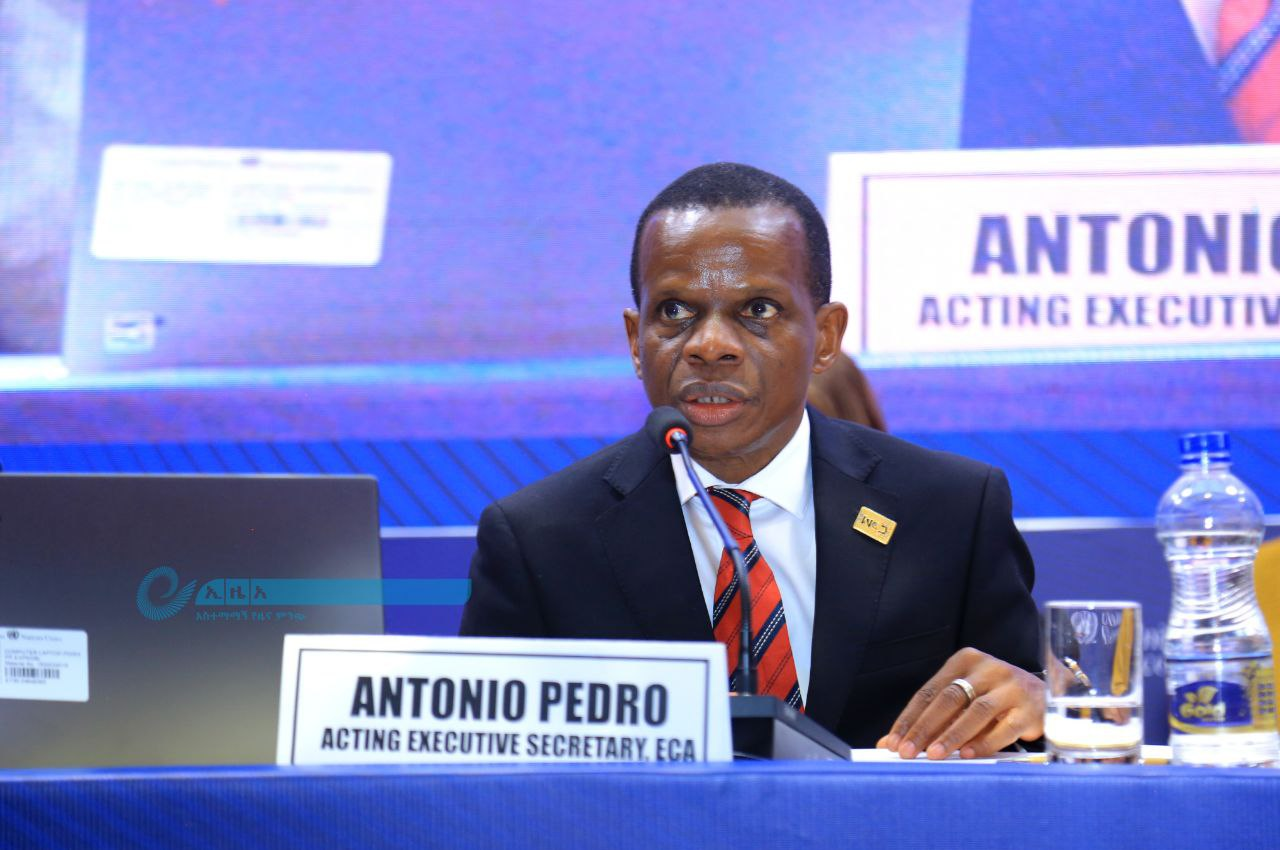Expediting implementation of AfCTA Powerful Lever for Poverty Reduction Crucial: ECA Acting Executive Secretary - ENA English
Expediting implementation of AfCTA Powerful Lever for Poverty Reduction Crucial: ECA Acting Executive Secretary

Addis Ababa March 15/2023 /ENA/ It is time to expedite the implementation of the African Continental Free Trade Agreement (AfCTA) as a powerful lever for poverty reduction, Economic Commission for Africa (ECA) Acting Executive Secretary, Antonio Pedro, said.
Speaking at the 55th session of the Economic Commission for Africa Committee of Experts today, he said the confluence of shocks – the cascading impact of COVID-19 pandemic, the war in Ukraine and severe natural disasters – have eroded Africa’s development gains, resulting in a staggering 149 million previously non-poor Africans now facing the risk of falling into poverty.
Africa currently accounts for the largest share of the world’s poor as the growing number of new poor and vulnerable people is making it harder to close the gap between the rich and the poor.
This inevitably has a far-reaching impact on achieving the sustainable development goals and the vision of the Africa we want, the acting executive secretary added.
First, there is need for real action on reducing the high cost of trade, Pedro stated, adding that this can ease the burden on access to affordable goods for poor, hard-hit households that are losing out on health, education, and meaningful opportunities.
“It is also time to expedite the implementation of the African Continental Free Trade Agreement (AfCTA) as a powerful lever for poverty reduction. The AfCFTA’s promise cuts across all economic sectors, presenting a new pathway for broad-based growth.”
Second, the ongoing climate crisis must be main-streamed in policy development and implementation, he noted.
According to him, we are living through the devastating impact of climate events that have led to the migration and displacement of some 85 million people in the continent.
Above all, moving Africa out of these crises will require resolving the fundamental flaws underpinning the international financial architecture and acting on lasting reforms, Pedro stressed.
Planning and Development State Minister, Nemera Gebeyehu, on his part said 2022 was a particularly difficult year, mostly due to multiple and overlapping shocks.
As a result, an array of development challenges – household poverty, food insecurity, energy insecurity, and social instability, among others, have arisen.
With 2030 less than eight years away, the majority of African nations struggle to reach the Sustainable Development Goals targets, the state minister noted.
Advocating for the reform of the global debt architecture and the re-channeling of IMF Special Drawing Rights are crucial in this regard.
The ECA has led the advocacy in the arena of the reform of the Global Financial Architecture, and thus has to continue its work and amplify this endeavor.
Also of importance is the need to mobilize domestic and external resources immediately to finance investments in quality education, universal health care, pandemic preparedness, decent work, and social protection, the state minister said.
"Failing to address these issues would likely hamper poverty reduction, recovery from recent shocks and building resilience to future shocks, for sustainable development."
Leveraging climate finance for decent job creation, for example, can help tackle poverty and inequality, according to Nemera.
He underline that this year must serve as a turning point for Africa. In the absence of this, Africa may be left behind and take years, even decades, to get back on track to meet the SDGs.